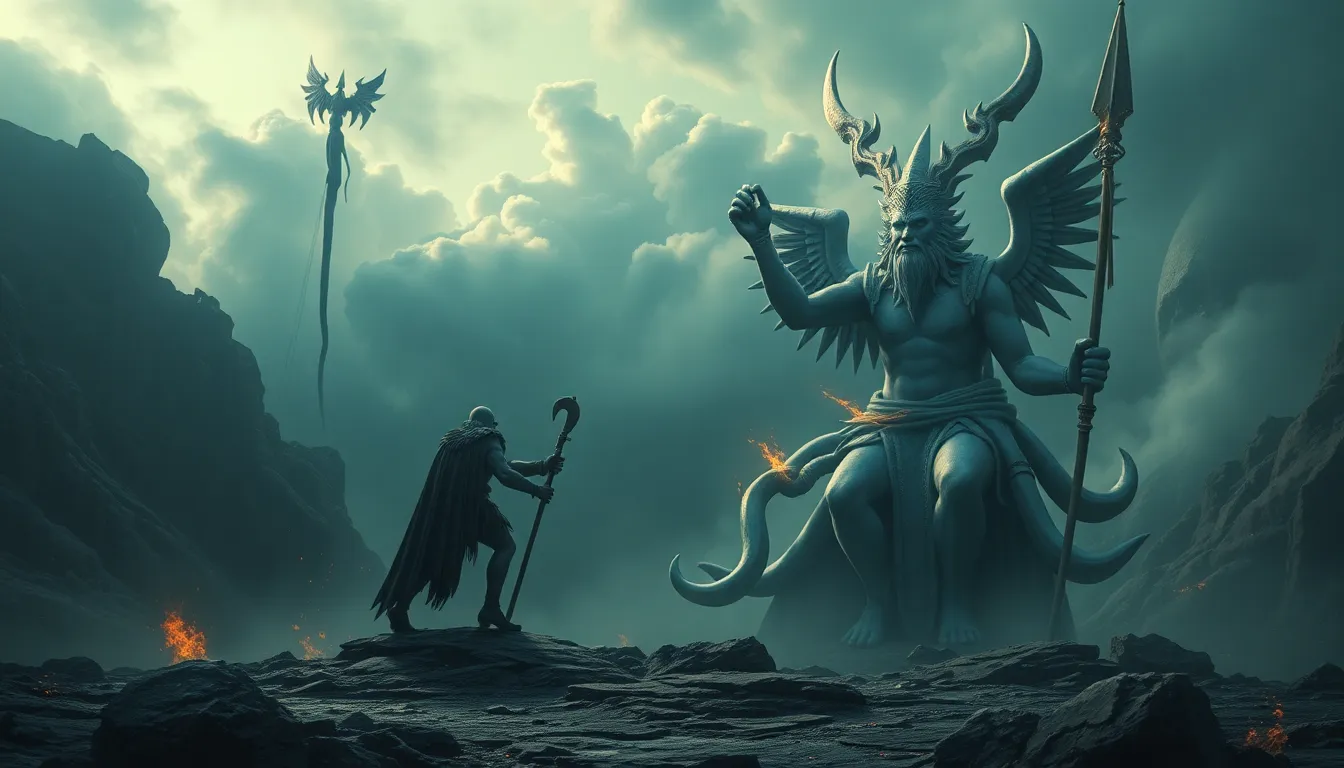The Price of Hubris: How the Gods Enforced Divine Justice
Introduction to Hubris and Divine Justice
Hubris, a term originating from ancient Greek culture, refers to excessive pride or self-confidence, particularly in defiance of the gods. It is often seen as a tragic flaw that leads to a character’s downfall. This concept is not limited to Greek mythology; it appears across various cultures, highlighting a universal theme of divine justice. Divine justice serves as a mechanism through which gods enforce moral order, ensuring that hubris does not go unpunished. In this article, we will explore the consequences of hubris through mythological narratives, illustrating how these stories have shaped our understanding of pride and its repercussions.
The Concept of Hubris in Ancient Civilizations
Hubris was a central theme in Greek mythology, often depicted as a challenge to the gods or a belief in one’s superiority over others. Characters displaying hubris would typically meet tragic ends, serving as cautionary tales for humanity.
Other ancient cultures also recognized the dangers of hubris:
- Mesopotamian Mythology: The story of the Tower of Babel illustrates the consequences of human pride as people sought to build a tower reaching the heavens, only to be scattered and confused by divine intervention.
- Egyptian Mythology: Pharaohs, regarded as gods on earth, often exhibited hubris by ignoring the divine will, which led to their downfall and the collapse of dynasties.
- Norse Mythology: Figures like Loki exemplify hubris through their cunning and arrogance, ultimately leading to chaos and destruction.
The role of pride and arrogance in human behavior remains relevant, as these traits continue to manifest in contemporary society.
Mythological Narratives of Hubris
Numerous myths exemplify the consequences of hubris:
- Icarus: Ignoring his father Daedalus’s warnings, Icarus flew too close to the sun, melting the wax in his wings and plummeting to his death.
- Narcissus: Obsessed with his reflection, Narcissus ignored the love of others, leading to his tragic demise.
- Arachne: A skilled weaver, Arachne challenged the goddess Athena to a contest, only to be transformed into a spider for her arrogance.
These stories illustrate the protagonists’ flaws and their eventual downfall, imparting moral lessons about the dangers of excessive pride.
Divine Justice: Mechanisms and Manifestations
Divine justice in mythology manifests through the intervention of gods and the inevitable role of fate. Often, oracles and prophecies serve as forewarnings of hubris, yet characters frequently ignore these warnings, leading to disastrous consequences.
Examples of divine retribution include:
- Lycurgus: The king of Thrace, who denied the divinity of Dionysus, faced madness and destruction for his hubris.
- Niobe: Boasting about her children in comparison to Leto’s, Niobe suffered the loss of all her offspring as punishment.
These tales reinforce the belief that the gods actively maintain cosmic balance, punishing those who overstep their bounds.
Case Study: The Fall of King Oedipus
The myth of Oedipus is a profound exploration of hubris and fate. Oedipus, determined to defy a prophecy that foretold he would kill his father and marry his mother, sought to outsmart the gods. His journey of self-discovery ultimately led to the fulfillment of the very fate he tried to avoid.
Oedipus’s hubris was evident in his belief that he could escape his destiny. His catastrophic consequences—blinding himself and living in exile—serve as a powerful reminder of the limits of human agency against divine will. This narrative invites reflection on the themes of fate versus free will, highlighting the complexity of human existence.
The Role of Hubris in the Trojan War
The Trojan War, a pivotal event in Greek mythology, showcases numerous figures who exhibit hubris, including Achilles and Agamemnon. Their pride and refusal to compromise ultimately led to collective suffering among the Greeks and Trojans alike.
Key figures include:
- Achilles: His overwhelming pride led to a personal grudge against Agamemnon, resulting in significant losses for the Greeks.
- Agamemnon: His arrogance in claiming Achilles’s prize, Briseis, incited Achilles’s wrath and withdrawal from battle.
Divine interventions by gods like Athena and Apollo further illustrate the theme of hubris. Their involvement often served to remind mortals of their place within the divine order.
Comparative Analysis: Hubris in Different Cultures
Hubris narratives are not exclusive to Greek mythology. Similar themes exist in other cultures:
- Tower of Babel: This biblical story illustrates humanity’s ambition to reach the heavens, resulting in divine confusion and scattering.
- Egyptian Pharaohs: Many pharaohs believed in their divine right to rule, often leading to their downfall when they disregarded the will of the gods.
Cultural interpretations of divine justice vary, yet they all highlight the importance of humility and the recognition of a higher power. These stories shape societal values by warning against the dangers of pride.
The Legacy of Hubris and Divine Justice in Literature and Art
The themes of hubris and divine justice have profoundly influenced literature and art throughout history. Writers such as Shakespeare have explored these concepts, infusing their characters with tragic flaws that lead to their downfall.
In art, representations of hubris can be found in:
- Paintings: Works depicting the fall of Icarus or the despair of Niobe serve as visual reminders of the consequences of pride.
- Sculptures: Statues capturing the moments of hubris, such as Arachne’s transformation, emphasize the moral lessons inherent in these stories.
These themes remain culturally relevant, prompting contemporary audiences to reflect on the dangers of arrogance and the importance of humility.
Modern Interpretations and Relevance
In today’s world, the lessons of hubris and divine justice continue to resonate. The rise and fall of leaders, corporations, and individuals often echo the mythological narratives of old. The consequences of overreaching ambition and pride are evident in various sectors, reminding us of the enduring nature of these themes.
As we navigate our complex world, the stories of hubris serve as cautionary tales, urging us to remain humble and aware of our limitations. Whether through literature, film, or art, the exploration of hubris and divine justice invites ongoing reflection on the human condition and our relationship with the divine.



